Between The Lines: Introducing our charity Sailor Shirt
Five people from our community open up about their mental health and talk about the importance of reading between the lines.
It isn’t always obvious when a person is struggling with their mental health. Sometimes, reading between the lines and checking in with someone can make all the difference.
We share Mind’s belief that no one should have to face a mental health problem alone. To help support the charity’s vital work, we’ve committed to donating £100,000 per year for three years (2021-2023).
As part of our partnership, this World Mental Health Day, 10th October, we’re launching our Between The Lines Sailor Shirt. All profits from sales of the shirt will go to Mind to provide help to anyone experiencing difficulties with their mental health.
To support the campaign, five people from our community who have experienced their own mental health challenges are sharing their stories. Jonny, Ridhima, Pete, Kerry and Sara feel passionately that opening up the conversation about mental health is a crucial part of raising awareness and reassuring others that they’re not alone.
Please note: this video contains mentions of depression, anxiety, miscarriage and eating disorders.
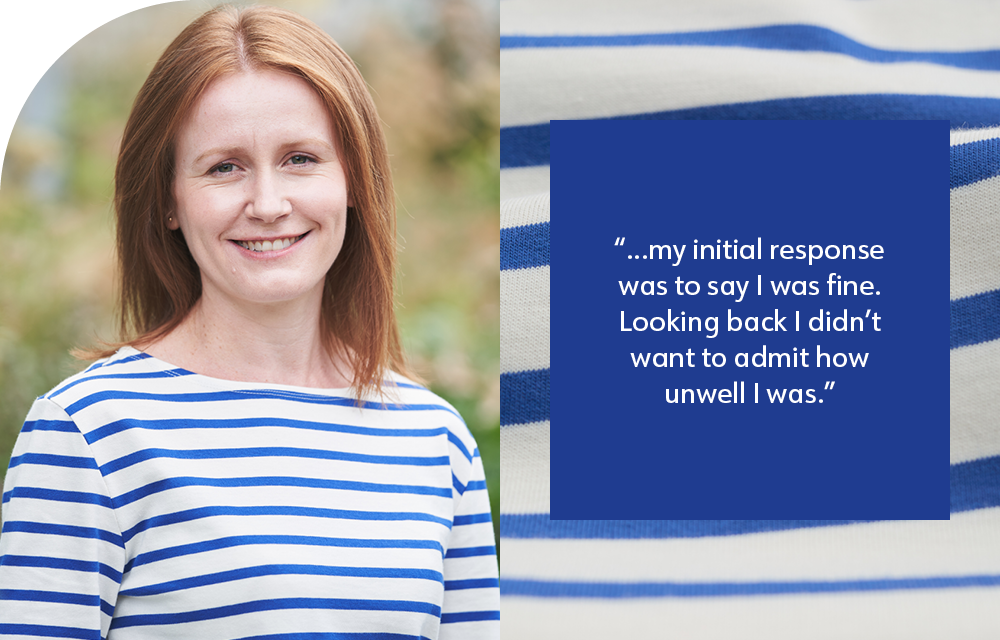
Kerry
I was diagnosed with EDNOS (Eating Disorder Not Otherwise Specified) when I was 20. Having an eating disorder was something I felt horrendous guilt and shame about, because I felt like I’d failed. I stopped going home to see family, I avoided socialising with friends, particularly when food was involved, because I didn’t want to have difficult conversations about what I was eating. I hid myself away under baggy black clothes to try and hide my weight loss.
When I was at my worst at university and people asked me how I was doing, my initial response was to say I was fine. Looking back, I didn’t want to admit how unwell I was. That’s completely changed now and after a long journey with therapy and self-discovery, I’m really proud that I’m living in recovery. When people ask me now how I’m doing, I really value it. I know it’s coming from a place of love and support, and I appreciate the space to talk.
It’s hugely important people check in with friends, family members, colleagues and even strangers just to make sure they’re doing okay. We need a culture where people feel they can talk about their mental health without fear of judgement, and help break down stigma about having a mental health problem.
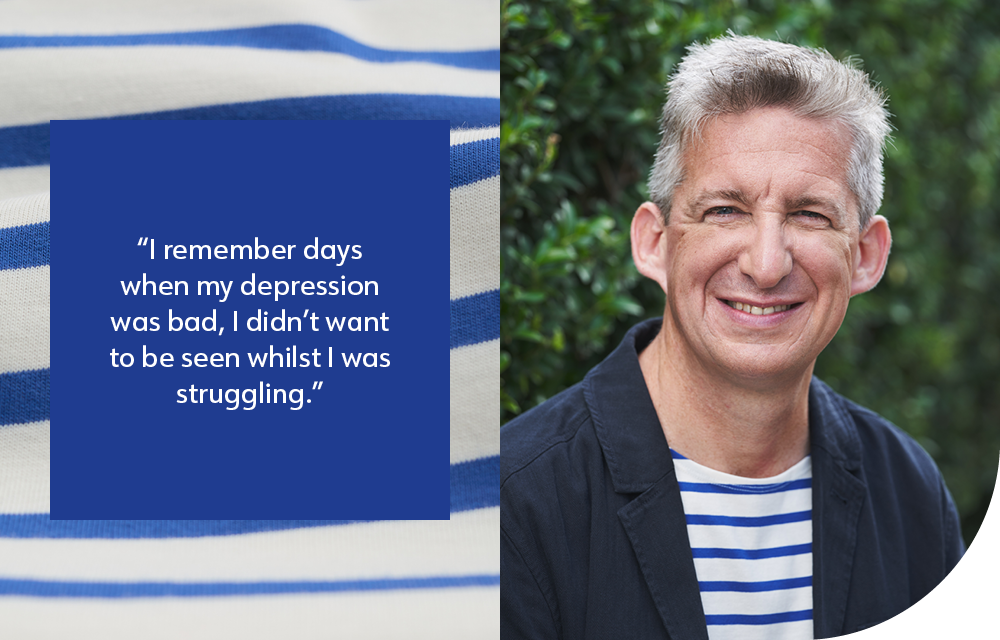
Pete
I have struggled most of my adult life with anxiety and depression. I remember days when my depression was bad, I didn’t want to be seen whilst I was struggling. But you get lonely when you’re isolated, so the problem just gets bigger and bigger.
When people ask me if I feel okay, the main thing I feel is that it’s quite liberating. I can remember times in the past where someone has said “you don’t seem yourself; you can say if things aren’t okay, is there anything you want to talk about? Is there anything I might be able to help with?” That kind of approach is good because it helps you open up and it gives you a way into the conversation.
It’s so important that we find a way and find the courage to ask those difficult questions. By doing that, we can make conversations about mental health everyday conversations, so that when people are struggling, it’s not some massive confession.
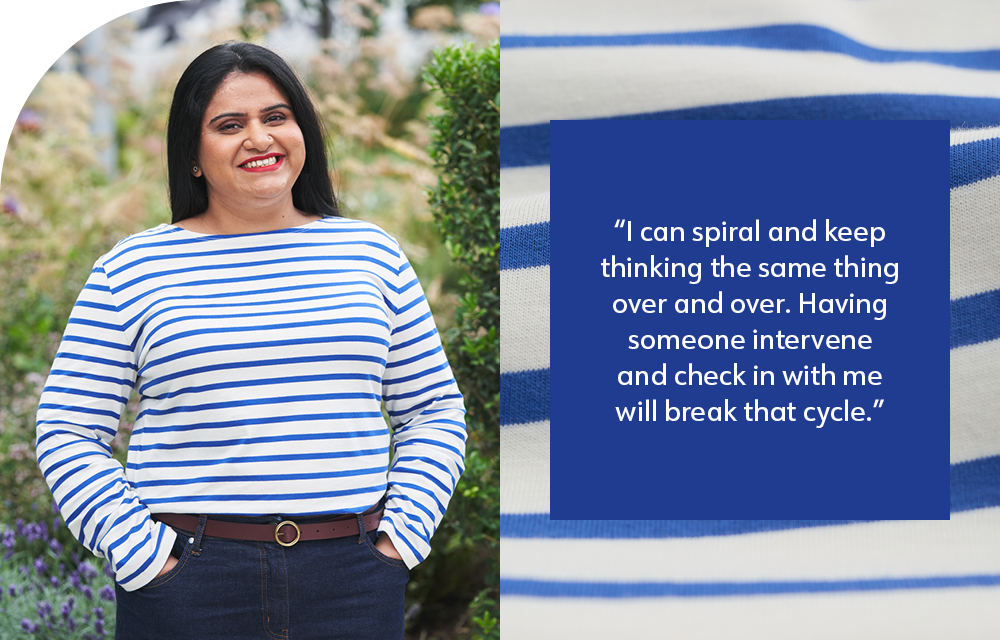
Ridhima
In 2019, I was blessed with depression and PTSD. The reason I say blessed is because I feel my depression and PTSD is a blessing in disguise. It has helped me find myself and empowered me to talk about my mental health.
I always describe my depression as a dark, thick piece of cloth or a veil. That veil is so heavy and no matter how hard I try to push it away, it doesn’t go away. Sometimes it’s easier to pretend I’m completely fine. This is the worst thing about mental illness, you don’t necessarily have the words in your vocabulary to express what is going on.
I can spiral and keep thinking the same thing over and over. Having someone intervene and check in with me will break that cycle. It’s so important, not just to check in but to remind others what they are capable of, who they are, how much they are loved.
You never know who is struggling. Asking people how they are doing, asking it twice if they brush it off, is super important to make sure that we remind people that we are there for them.
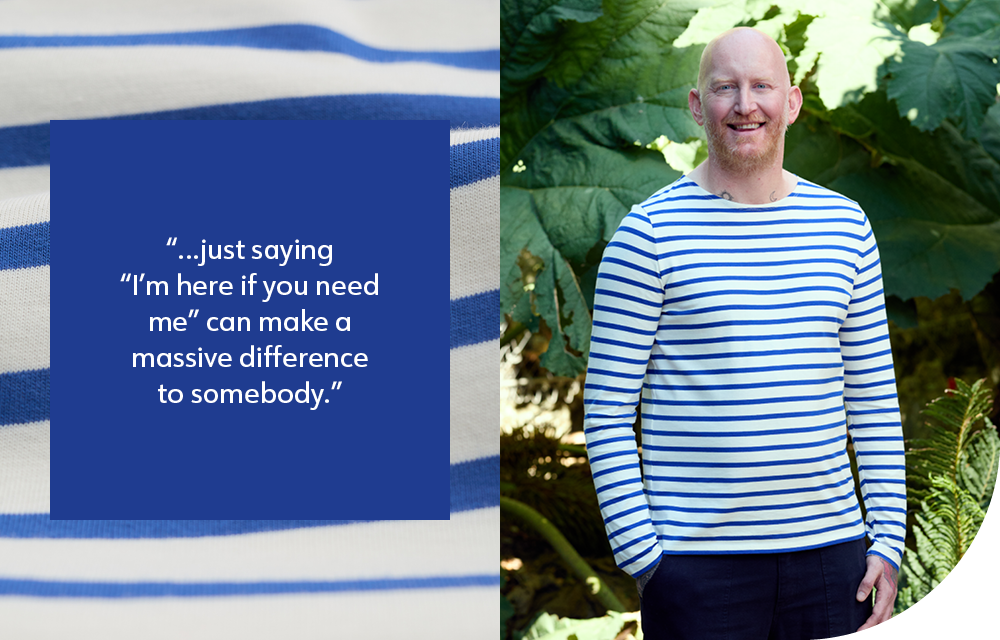
Jonny
I have previously suffered with anxiety, intrusive thoughts and mild OCD, and I worried quite a lot about things that were completely out of my control. I became withdrawn sometimes and I wouldn’t want to do anything. I would refuse to go out with friends or attend after work events.
Family, friends and work colleagues can be the best judge of character as they see you day in day out. I think sensing that somebody is a little bit off or potentially a bit quiet and just asking if they’re alright, can make a huge difference.
Not everybody will be comfortable about opening up, which is something that the person who is asking the question needs to understand. Sometimes, saying “everything will be okay” might not be what someone who is suffering will want to hear, because they don’t believe it. However, saying “I’m here if you need me” can make a massive difference to somebody when they’re struggling. I know it did for me.
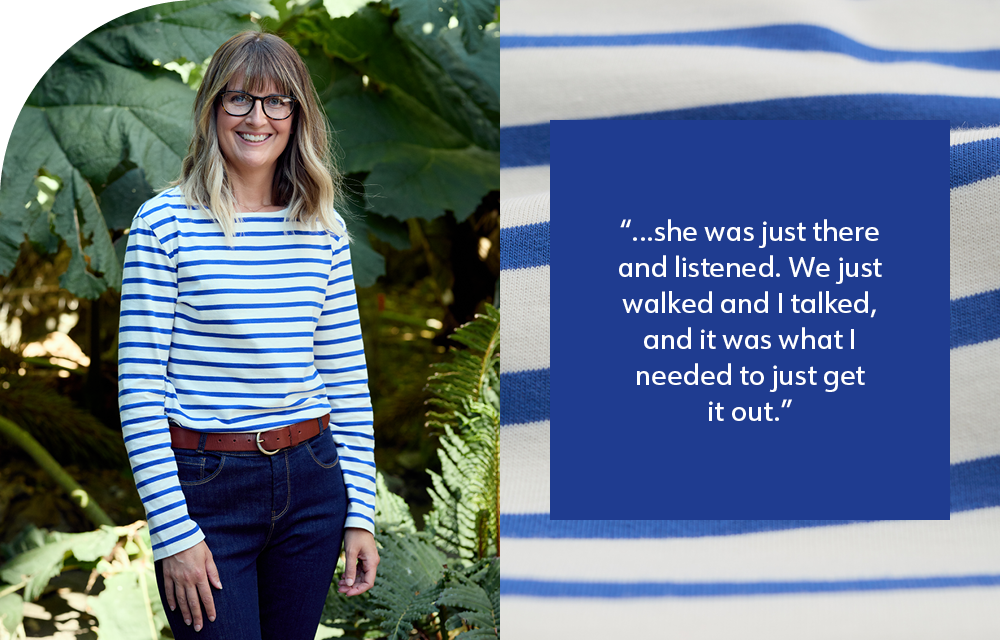
Sara
In 2019 after our first round of IVF, I had a miscarriage. Trying for a baby isn’t something people talk about; you only really express happy news when it’s ‘safe’ to do so. So, in terms of trying to hide your grief when the worst happens, the only thing you can really do is just carry on with the day-to-day and try and be as normal as you can. It’s really hard, because you are grieving for something that’s happened, for the child and dreams you’ve lost, but you’re back to work and don’t want to show that you’re feeling these emotions.
Sometimes I think you can tell, even from a text message, that things aren’t right with someone. My friend who I met via Instagram, who was also going through the IVF process, can quite often tell if I’m having a bad day. After I had the miscarriage, she came round, and she was just there and listened. We just walked and I talked, and it was what I needed to just get it out. I’m really thankful that she had the courage to be that person.
I think checking in on the people around us can have a huge impact. Having the intuition that someone doesn’t seem quite themselves is really valuable. That person may just need you to hear them.
If you or a loved one are struggling with mental health issues, you can find resources and support on Mind’s website.
Our Between The Lines Sailor Top is available in sizes 6-28 for women and S-XXL for men online and in selected shops.

